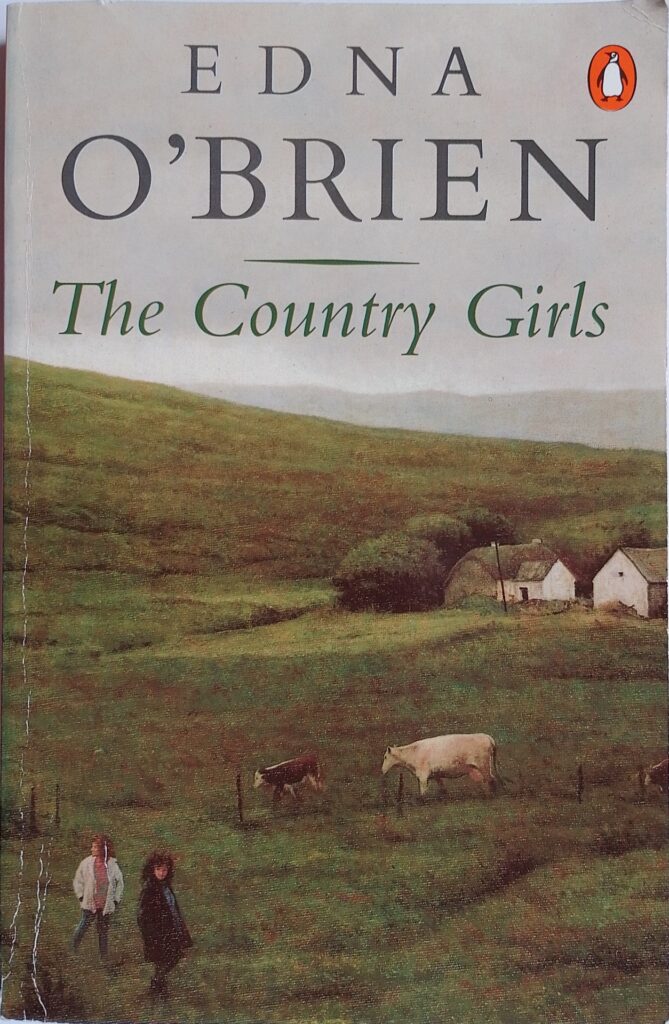First published 1960. Penguin, paperback, c.1998, pp 188, c. 66,000 words.
What a delightful story this is. A simple tale of a girl growing up in rural Ireland and eventually moving to the big city of Dublin. It’s not preachy or dismissive of rural life and the people who live there, but one can feel the low horizon and the lack of opportunity for brighter sparks.
The girls are Caithleen Brady and her friend Baba. Caithleen is born into a relatively well-to-do household where her father owns a large farm. However, he is a drinker, and when drunk likes to hit people. He is often away on bouts spending money he doesn’t have, neglecting his family and farm, and consequently it is all slipping away. Caithleen’s mother despairs. Caithleen is naïve but intelligent and, at fourteen, wins a scholarship to a convent school in a nearby town. Her street-wise friend is less academic but has parents that can afford to send her to the same school. There are some very amusing scenes where Babs unashamedly exploits Caithleen’s good nature and need for friendship. It seems as though everyone in their village is trapped in the wrong relationship. Both girls fancy ‘Mr. Gentleman’, a married man in their small home town. He is kindly and gives them lifts in his smart car. The girls grow into young, fairly innocent, young women. Eventually they leave school and move to Dublin for work. The city is exciting after rural life, but daunting, particularly for the less out-going Caithleen.
O’Brien writes using simple straightforward language that well suits her heroines and is marvellously easy to read and yet full of the music of the land and its people. There is a wonderful blend of teenage innocence and knowing. ‘During those three years [at the convent] nothing special happened to us, so I can pass quickly over them.’ [p110] As the girls grow, so they learn of the first flowering of love and of male attention: wanted and unwanted, given and restrained. The girls may have only vague knowledge of adult life and yet grow into knowing what they want. There is a simple and yet erotic encounter towards the end, full of sexual charge and yet framed in naivete.
This could so easily have become a misery memoire, as it is clearly close to the author’s own upbringing, but it doesn’t. Life in rural Ireland in the early nineteen fifties may have been extremely limited; for women there was only three choices: housewife, nun or escape, but it also had it charm and beauty. Human relationships in all there multi-faceted glory thrive in even poor soils. A drunken and abusive father, impoverishing his family, provides an awful backdrop, but this story shows that it is possible to transcend such an origin, and besides there are always folk who are worse off. In the end one is left with warmth and goodwill. There is no sentimental happy ending, but a feeling that life for these girls will be worth the living.
© William John Graham, January 2023

